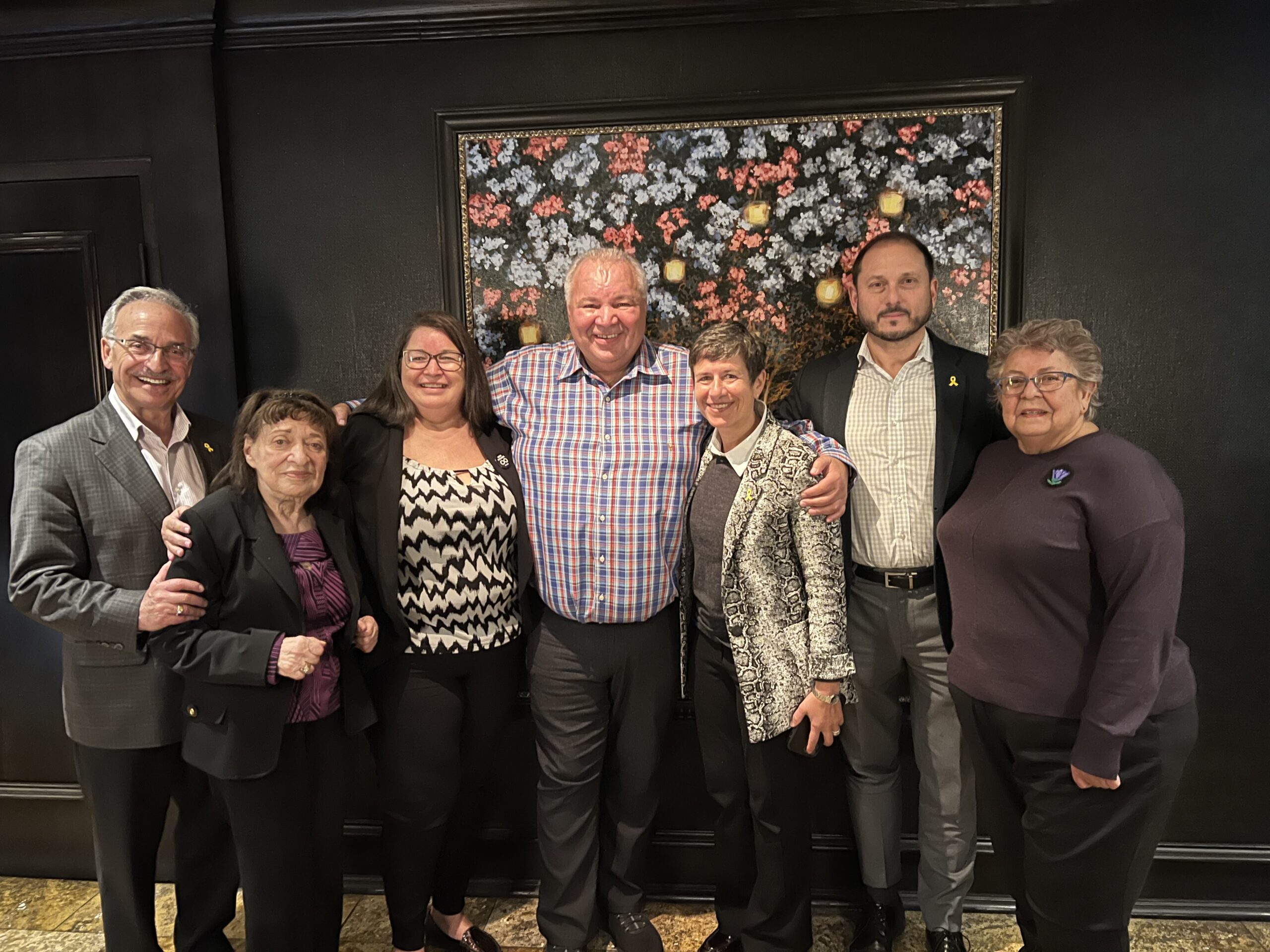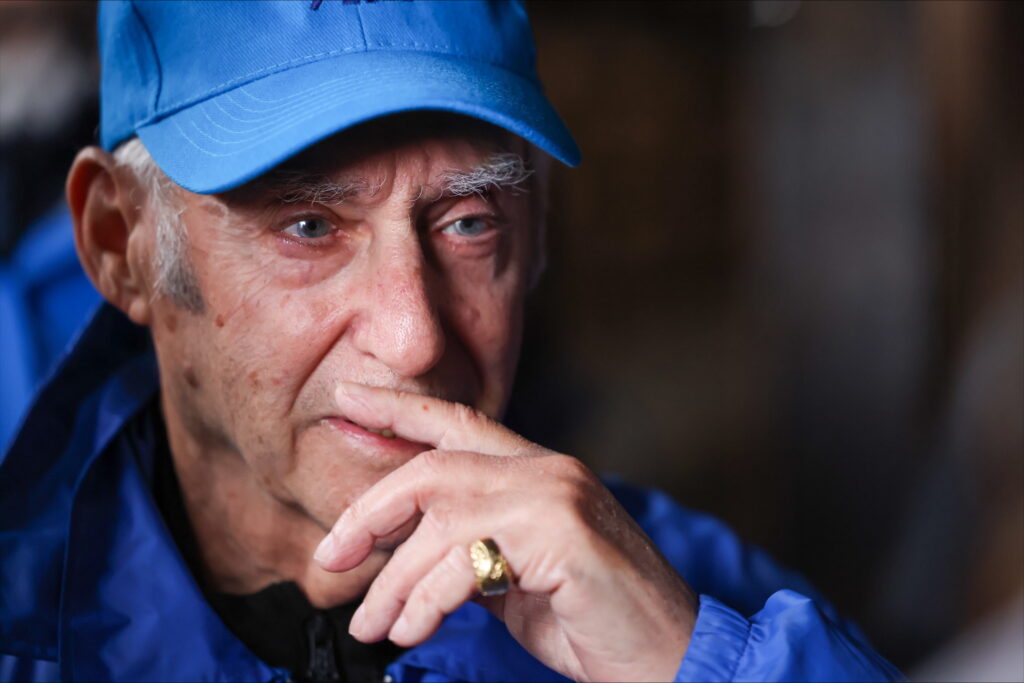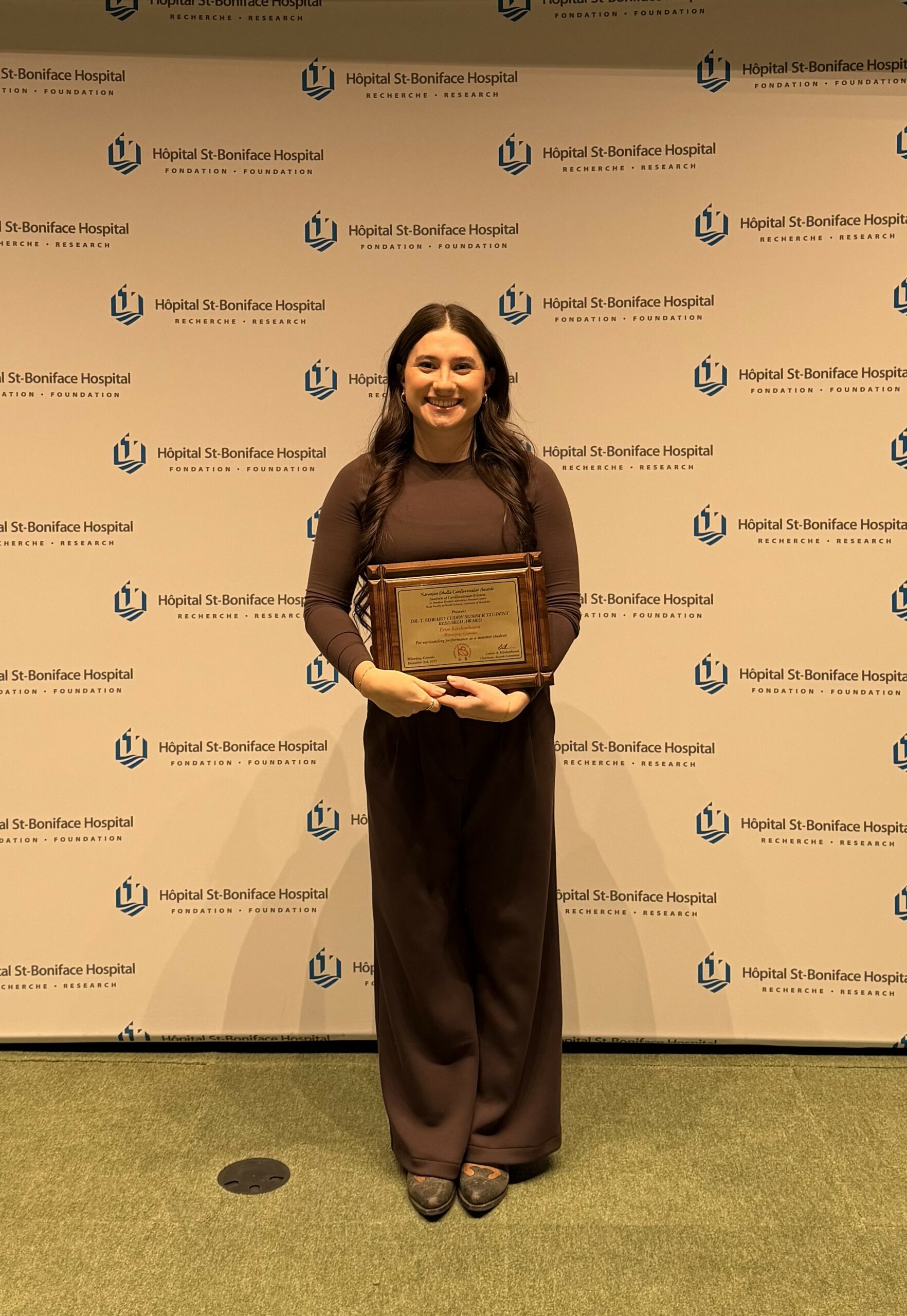Local News
Manitoba Métis Federation decisively votes down anti-Israel resolution

By MYRON LOVE On May 2, 2023, the Manitoba Métis Federation (MMF), the Vickar Automotive Group and Ben-Gurion University of the Negev signed a Donor Pledge Agreement to establish a partnership for research, education and culture exchange. The partnership aims to promote cooperation and mutual understanding between the Red River Métis community and the academic community in Israel. The collaboration will focus on research in areas such as health, environment, and social issues, as well as educational and cultural programs. The partnership will also involve the sharing of resources and expertise.
On Saturday, October 19, at its Annual General Assembly, which was held at Assiniboine Downs, the 4,000 MMF delegates resoundingly beat back an anti-Israel resolution that called upon the MMF Assembly to vote to tear up the agreement with Ben Gurion University – referencing the Pope’s recent criticism of Israel and the usual laundry list of false charges against Israel – war crimes, violation of international law, genocide, apartheid, etc.
The two petitioners also charged that BGU builds the bombs that the Israeli air force is dropping on Gaza and practices “water apartheid.” They further threw in a demand that longtime MMF President David Chartrand write a letter to the Government of Israel and the Government of Canada demanding a ceasefire.
To his great credit, Chartrand answered back forcefully, even angrily at times. He spoke about his visit to BGU last year. He commented on how what once was desert is now green. He noted that the agreement with BGU stands to provide the Red River Métis with many benefits – with exchange programs, underwritten by the Vickar Group – will expose young Red River Métis to a different society and bring here BGU personnel and technical expertise of benefit to local Métis communities.
As to the resolution, the MMF president began by emphasizing that Ben Gurion University “has nothing to do with this war.”
Chartrand then pointed out that the words in the resolution that were attributed to the Pope were not accurate. He noted that this is both a land war and a religious war. While expressing sympathy for the suffering on both sides, he condemned the Palestinian terrorist groups who use women and children as human shields.
Chartrand angrily denounced the two petitioners – with their standard Palestinian clothing accessories – for not presenting the General Assembly members with all the facts. He further excoriated those “pro-Palestinian” activists who burned a Canadian flag at an anti-Israel protest in Vancouver a couple of weeks ago.
“I understand and respect where you are coming from,” Chartrand told the petitioners. ”We are prepared to help rebuild Gaza when this war is over. We are a democracy and you are free to submit this resolution. But, right now, there is nothing the Manitoba Métis Federation can do about the situation.
And, Chartrand added, “I am not going to write any letter to the Government of Canada or the Government of Israel.”
Larry Vickar and Gustavo Zentner, the Centre for Israel and Jewish Affairs representative in Winnipeg, attended the MMF General Assembly as observers.
“I applaud David Chartrand’s leadership at the Assembly,” Zentner observed. “The resolution was one-sided and ill-founded. President Chartrand has shown a keen understanding of the concept of the Jewish People’s indigeneity to the land of Israel. In his response, he delivered a clear message to the anti-Israel activists at the General Assembly.”
Zentner reported that he and Larry Vickar attended the launch of the MMF’s AGA and participated in government presentations and networking. “The MC recognized us amongst the government, elected officials, and MMF partners,” he noted. “This was a result of Larry’s tremendous record of working with MMF and President Chartrand.”
He added that “we were briefed on the motion and were able to provide insights and a narrative to support the MMF and President Chartrand. We already have tangible actions and steps in motion which Chartrand and two of his MMF cabinet ministers are aware of.”
Zentner noted that CIJA’s outreach to the Red River Métis is part of the national Jewish organization’s ongoing efforts to build bridges with different levels of government as well as other communities.
“The Jewish people, the people of Israel and the Red River Métis have much in common,” Zentner observed. “We are both indigenous people living on our native land – with shared values. We have much we can learn from each other.”
He further spoke of planned educational and cultural exchanges between the Red River Metis and Israel’s southernmost university. “Israel is a world leader in technology in many areas,” he noted, “technology that Israel is always ready to share with partners worldwide.”
Local News
March of the Living 2023 participants form Taste of Hope project to help honour the memory of Holocaust survivor Alex Buckman

By BERNIE BELLAN The March of the Living is an annual two-week international educational program that brings thousands of students and adults to Poland and Israel to study the Holocaust, Jewish history, and the rise of the State of Israel. Founded in 1988, it features a 3-kilometer silent walk from Auschwitz to Birkenau on Yom HaShoah (Holocaust Remembrance Day).
Attendees on the march are accompanied by adults, some of whom themselves have been Holocaust survivors.
Following the week in Poland, participants travel to Israel to observe Yom HaZikaron (Israel’s Memorial Day) and celebrate Yom HaAtzmaut (Israel’s Independence Day), marking a journey from darkness to life.
For many years the coordinator of the march in Winnipeg was Roberta Malam, working on behalf of the Jewish Federation of Winnipeg. More recently Abby Flackman filled that role, and now the person in charge is Lindsey Kerr.
Since its inception 37 years ago the March of the Living has become a rite of passage for many young Winnipeg Jews who have been able to participate as an organized group from Winnipeg and combine visits to the death camp at Auschwitz-Birkenau in Poland with the subsequent trip to Israel.
Then – the Covid pandemic hit – in 2020, and the March of the Living was put on hold for two years – in 2020 and 2021.
In 2022, the March of the Living resumed, but there was no organized contingent from Winnipeg participating. (There may have been some Winnipeggers who did go on the march that year, but if there were any they would have been part of a general Canadian group since there was no Winnipeg coordinator that year.)
In 2023, however, once again a very large contingent of young Canadian Jews – 51 altogether, of whom approximately two-thirds were from Winnipeg, went on that year’s March of the Living. That particular march was memorable for many reasons, including the fact it was the last full march since 2019 and was to remain the last march to have an organized Winnipeg contingent in the past six years as the years 2024 and 2025 were interrupted by the war in Gaza. (There were smaller marches held in 2024 and 2025, but again there was no organized contingent from Winnipeg.)
Recently, we were contacted by one of the participants of that 2023 march, Ethan Levene, who asked us whether we’d be interested in running what turned out be a very poignant story about one particular aspect of that 2023 March of the Living.
Here is what Ethan wrote:
“In April 2023, the Coast to Coast Canadian delegation of March of the Living was privileged to travel with Holocaust survivor Alex Buckman (z”l). March of the Living is a Holocaust education trip that allows participants to visit and bear witness to the sites of the Holocaust. Unfortunately, while sharing his story in Poland, Alex passed away. However, the impact he left on us students was immeasurable.

“While speaking to us in Warsaw, Alex told us the story of his Aunt Becky’s gâteau à l’orange (orange cake). While in Ravensbruck concentration camp, his aunt managed to write down this recipe. After his parents’ murder, his Aunt Becky went on to raise Alex after surviving. In addition to sharing his story, Alex tasked us with baking the cake with family and friends.
“Out of this, a group of alumni from our trip have created this project: ‘A Taste of Hope.’ On February 1st, university students from over 5 universities across Canada will come together to bake the gâteau à l’orange and hear Alex’s story. Proceeds from the event and this fundraising page will support the World Federation of Jewish Holocaust Survivors and Descendants. Alex was heavily involved with this organization, whose mission is to both create community for Holocaust survivors and their descendants and educate about the Holocaust to help fight against antisemitism and all forms of bigotry and hate.
“Here is information from our fundraising page for the event – ‘A Taste of Hope’: Fundraising for A Taste of Hope.
Ethan added that “it’s completely student led, all by alumni from our 2023 trip attending university at these various locations across Canada; Winnipeg, London, Kingston, Montreal.”
He also added: “Follow us on instagram@tastehope.“
Here is a link to a CBC story about Alex Buckman: Alex Buckman story
In a subsequent email Ethan gave the names of Winnipeggers who are involved in A Taste of Hope: Ethan Levene (studies at McGill), Zahra Slutchuk, Alex Stoller (studies at Queens), Coby Samphir, Izzy Silver (studies at Waterloo).
He also added names of others who are involved in the project: Jessie Ages, Anneke Goodwin, Lilah Silver, Ella Pertman, Ellie Vogel, and Talia Cherun.
To find out more about March of the Living in Winnipeg go to: March of the Living
Local News
Young Researcher Eryn Kirshenbaum 2025 recipient of the Institute of Cardiovascular Sciences prestigious Dr. T. Edward Cuddy Award

By MYRON LOVE Fifth year University of Manitoba Faculty of Sciences Microbiology student Eryn Kirshenbaum is this year’s recipient of the Dr. T. Edward Cuddy Student Award in recognition of her excellence in research under the supervision of Dr. Inna Rabinovich-Nikitin, Assistant Professor of Physiology and Pathophysiology, University of Manitoba and Principle Investigator in Women’s Heart Health Research at the Institute of Cardiovascular Sciences at the St. Boniface Hospital Albrechtsen Research Centre.
When asked for her reaction to learning she was the 2025 recipient of the student award, Kirshenbaum says “I was so honoured, humbled and excited to have been nominated and then chosen as the recipient out of many well deserving students.”
Rabinovich-Nikitin, Kirshenbaum’s mentor, says “This is Eryn’s third year working in my lab and I am incredibly proud of her for winning the Dr. T. Edward Cuddy Research Award.” She adds: “It is a truly deserved honour. Since joining my laboratory in 2023, Eryn has shown an exceptional combination of technical skill, intellectual curiosity, and professional maturity, becoming an integral contributor to our research on women’s heart health, an area of growing scientific importance that demands both rigorous methodology and a strong understanding of sex-based differences in heart disease.
“Not only has Eryn provided invaluable experimental support, but she has also taken on a leadership role in training new students and has demonstrated a strong commitment to collaboration and mentorship.”
In return, Kirshenbaum notes that she has “learned a lot from Dr. Rabinovich-Nikitin. She is a great mentor and I look forward to learning and growing even more under her leadership”.
The T. Edward Cuddy Award is one of 12 awards presented annually by the Institute of Cardiovascular Sciences in partnership with the University of Manitoba.
The 27th Annual Institute of Cardiovascular Naranjan Dhalla Awards were held on December 2nd and 3rd as part of a two-day conference comprised of a scientific forum and awards ceremony. The awards celebrate the leadership of individuals who have profoundly influenced the advancement of cardiovascular research, medicine and health education, including, in previous years, Nobel Prize winners and Gairdner Award Scholars. The Institute of Cardiovascular Sciences Gold Medal was awarded to Dr. Stanley Nattel, Director of the Montreal Heart Institute for his outstanding contributions to advancements in cardiac arrythmias and patient care.
Eryn Kirshenbaum, the daughter of Barry and Kim Kirshenbaum, says she was always interested in understanding the functioning’s of the human body, in particular the heart, which has fit with her desire to pursue a career in medicine and possibly continued heart health research.
A graduate of the Hebrew Bilingual program at Brock Corydon Elementary School, Ecole River Heights, and Kelvin High School French Immersion, Eryn says that she has always been interested in science, particularly cardiology. She reports that she has assisted as co-author on 5 research papers, including one where she was the primary author, focusing on women’s heart health and how heart disease affects women differently than men. That paper also investigated the connection between disrupted circadian rhythms and heart disease, specifically related to individuals with irregular sleep patterns, such as shift workers.
Eryn notes that, in addition to her university studies and research activities, she works part time as a Medical First Responder with St. John Ambulance – an activity which complements her medical research. “With St. John Ambulance, I have had calls dealing with the early stages of heart attacks and strokes as well as basic first aid,” she notes.
Readers might also run into Eryn at many Jewish celebrations such as Yom Ha’atzmaut, where she helps her dad with the family entertainment business.
While her ultimate goal, she says, is to practice medicine, she adds that she is really enjoying doing research.
Local News
Young entrepreneur Noah Palansky and partner Jordan Davis are the first Winnipeggers to crack Forbes Magazine’s “top 30 Under 30” list

By MYRON LOVE From a very young age, Noah Palansky has demonstrated initiative and leadership. I first met and interviewed Palansky in 2011 at a low point in his life. His mother, Naomi Palansky, had sadly passed away at a young age. The then 12-year-old channeled his mourning into action. With his younger sister, Lexi, by his side – and the support of his father, Bruce – the preteen entered a team in the annual CancerCare Manitoba Foundation Challenge for Life. For the next few years, Palansky’s teams – under the banner, “Kids Count” – raised thousands of dollars for cancer researched.
Fast forward to 2019. Palansky was by then a young adult with a new initiative. The year before, he and a couple of friends had entered a potential business proposal in a competition sponsored by Winnipeg-based North Forge, Canada’s only start up incubator and fabrication lab, and won the top prize.
In that 2019 story, the young entrepreneur recalled how he came up with idea for his new business – TAIV (the AI stands for artificial intelligence). In the spring of 2018, he recounted, at the height of the Winnipeg Jets playoff run, he and his girlfriend were watching the game on a big screen while having drinks in a restaurant when an ad appeared onscreen promoting a rival restaurant and advertising the same drink he was imbibing – at a lower price.
“That ad gave me the germ of an idea,” he said in that earlier interview. “I immediately spoke to the restaurant manager and asked how he felt about the ad,” he recalls. “He was not pleased.”
That germ of an idea has developed into a highly successful new business venture. The idea that was put into practice has landed Palansky and his partner, Jordan Davis, on Forbes Magazine’s 30 Under 30 list in the Marketing and Advertising category. The duo are the first Winnipeg-based entrepreneurs to have received this honour.
“It came as a complete surprise,” Palansky responds. “We had no advance notice that we were even being considered for this recognition.”
Since TAIV officially launched in 2021, the company – still based in Winnipeg – has grown to a workforce of about 80 – most of whom are based here. Palansky notes that TAIV also has sales offices in New York, Chicago and Los Angeles.
In the past four years, TAIV has built a presence in nearly 5,000 venues across the United States. The company works with brands like Coke, Pepsi, Netflix, T-Mobile, FanDuel, Fox, and United Airlines.
“The way this works,” Palansky explained to this writer in 2019, “ is that if you are in Boston Pizza, for example, watching a Jets game and a commercial comes on, our software will switch the commercial to an ad for Boston Pizza.
“We make a little box that sits between your cable box and the TV. Our box can detect when a commercial is coming on and switch the ad out for one promoting the restaurant or store the box is in.”
For larger enterprises, Palansky notes, TAIV produces a web app that allows the company to switch its own in-house ads for the ads that would be appearing on screen.
In a statement by North Force celebrating Palansky and Davis’ achievement, Palansky is quoted as saying that “the Forbes achievement offered a rare moment to pause and reflect.
“There are very few moments where a third party reaches out and says, ‘We’ve noticed what you did, and we think it’s awesome.’ This felt like one of those rare moments.”
The North Forge report also sees the recognition as a win for the community.
“I wish we had more Winnipeg entrepreneurs on the global stage because it’s really good for the local ecosystem,” Palansky is quoted as saying. “I’m trying to do what I can to help others get off the ground.”
Palansky and Davis are looking forward to going to Phoenix in April for the official presentation.
He adds that TAIV continues expanding across North America, strengthening partnerships, and onboarding advertisers as the network grows. For local venues or businesses interested in installing TAIV or exploring advertising opportunities, the company welcomes inquiries at hello@taiv.tv.


